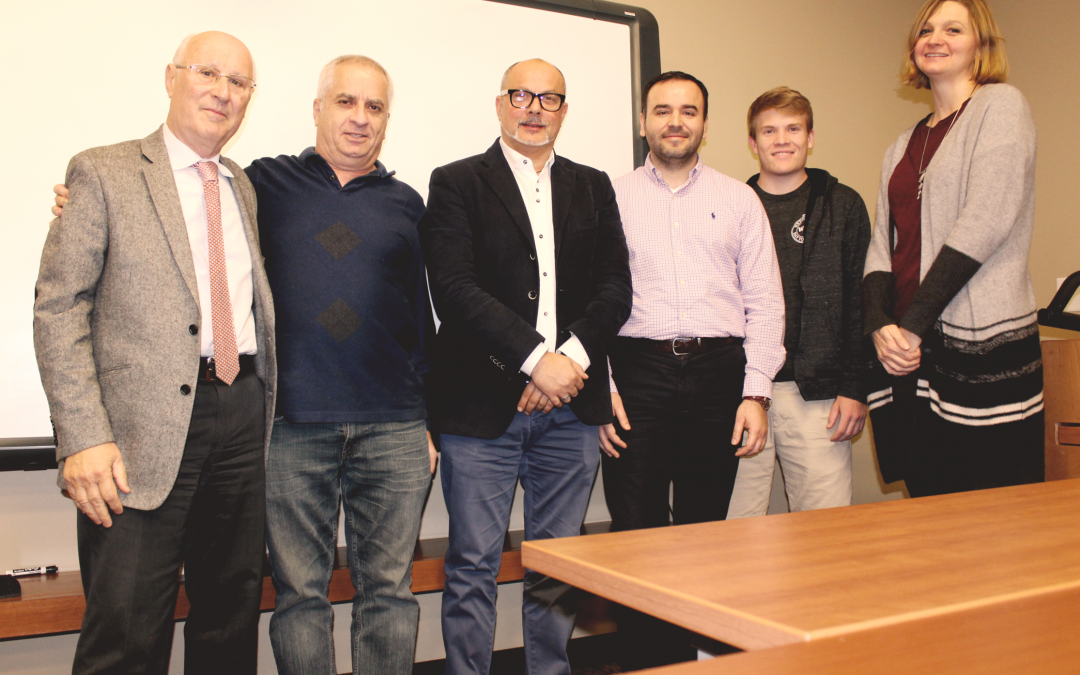SAN MARCOS, Texas — The development of innovative algorithms for image and text analysis is the focus of a research agreement signed between Texas State University and Instant Media Analyzer, Inc. (IMA), based in Austin, Texas.
IMA is a subsidiary of Maxfone, a big data analysis company based in Verona, Italy. The project, which will unfold over the course of 2019, aims to improve depth and efficiency of big data analysis for a better understanding of web trends and people’s behavior and needs.
Transforming raw and disorderly data into readily usable information is Maxfone’s mission: real-time strategic insights are delivered to allow institutions and companies to improve their knowledge of their target, to identify trends in public opinion and markets and be able to make better informed decisions.
The research project, the basis for possible further collaborations, is set in a context of extremely interesting development, and its signing confirms Texas State’s appreciation of IMA’s competencies and technologies.
Having been officially classified as an Emerging Research University by the Texas Higher Education Coordinating Board since 2012, Texas State is strongly oriented towards innovation and values academic excellence as one of its core traits, with a strong and continuous focus on groundbreaking research, often working closely with public and corporate institutions in numerous fields. The University offers important research opportunities both to its students — over 38,000 — and to faculty — over 1,300 professors.
Research and development are also part of Maxfone’s DNA. Maxfone’s proprietary model received the first Italian patent in big data analysis and is recognized for its unique depth capabilities on multiple levels. The company has always engaged in research project collaborations with Universities, with excellent results which, over the years, have contributed to improving the model’s capabilities.
This project will involve faculty members of Texas State’s Department of Computer Science Dr. Metsis, Dr. Tesic and Dr. Tamir, along with a team of students. The Professors collectively bring a notable research background to the project, both in academic and in corporate environments, acquired within the US as well as overseas. Amongst others, their areas of specialization comprise machine and deep learning, data mining, computer vision, image analytics, data analytics and compression, and human-computer interaction.
The research project’s objective is to implement two interpretative algorithms for the near-real-time analysis of images and text, both of which will be integrated in Maxfone’s model, enabling increased depth in the automatic understanding of the public’s experience and behaviour. Deep learning techniques will be utilized in the algorithms’ implementation.
The first algorithm aims to identify the content of images (eg. identify all images that include a tree or all those taken indoors) to sort and classify them in different categories based on the recognized content.
The second algorithm will concern sentiment analysis: by analyzing a text string (eg. a tweet) it will be able to assign a sentiment to it (positive, negative or neutral).
In statistically processing the resulting tendency, Maxfone’s model will be able to identify the emerging behaviours on the web, also allowing predictive analyses.
The datasets employed to train the two algorithms will be provided by Maxfone’s SocialMeter Analysis platform, which can collect, index and store large quantities of publicly available data from qualified sources on the web, while the algorithms’ accuracy will be verified using reference data sets that are already available.
One of the key characteristics of the two algorithms’ software implementation will be its flexibility: the interpretative modules will be independent from the learning modules — which will have machine learning abilities. This will allow the algorithms to be retrained in the future to identify categories not previously defined (eg. recognize other objects or newly launched brands, or detect foreign languages), dynamically modifying their abilities.
Through the joint project agreement, Maxfone will provide financial contribution, while Texas State will arrange faculty and students’ research. This is set in the company’s wider current investment plan for which it is allocating a first round of capital increase of €1.5 million, supported by advisory company M&A Partners; in addition to R&D, the capitalization will finance commercial and structural-organisational investments.
Maxfone is an innovative SME committed to the development of big data analysis solutions through the collection, indexing and analysis of data from the web, aimed at acquiring specific insights on the emerging dynamics, technologies and trends in the markets. The company operates with a scalable model, targeting a medium and high-profile audience, and pursuing continuous innovation.

